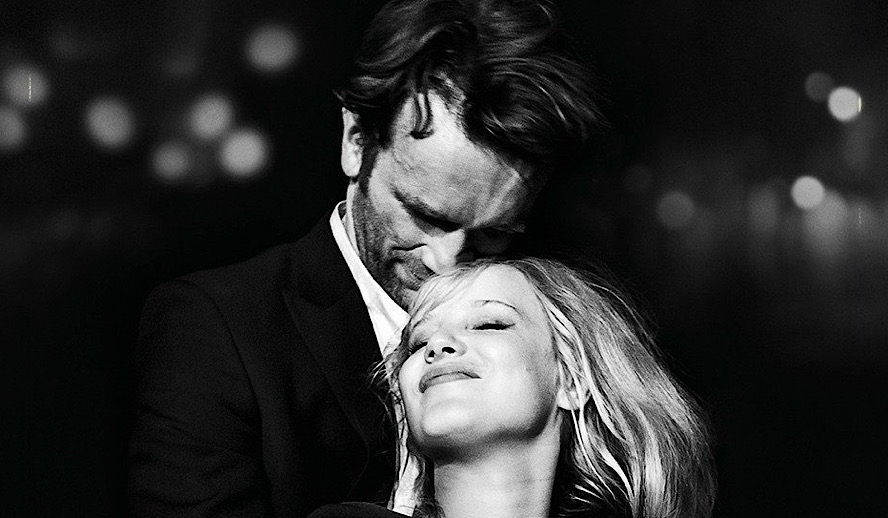Table of Contents

Photo: Cold War/Curzon Artificial Eye
Cold War is a masterfully directed film that deals with how individuals strive to make a home in historical time
What happens to a love story when lovers not only struggle against external adversity or inter-relational conflict, but grapple with the very existential task of being their own selves in a world that denies it to them constantly, in multifarious ways? Pawel Pawlikowski’s Cold War, the winner of the Best Director Award at Cannes in 2018, presents us with the tragedy of two characters who, despite themselves, their own ambitions and their historical conditions, cannot stop to pursue each other. Loosely based on the story of his parents, Pawlikowski describes his intention behind the film as “[wanting] to make […] a beautiful disaster.” Cold War is indeed the artful realization of this goal.
The story starts in rural Poland in the aftermath of the Second World War and spans nearly two decades, traversing Berlin, Yugoslavia and Paris, as we map out the geography of post-war Europe and the political divide between the East and the West, as well as the intermittent but nonetheless intense relationship between our protagonists, Zula and Wiktor, flawlessly brought to life by Joanna Kulig and Tomasz Kot.
Related article: Hollywood Insider’s CEO Pritan Ambroase’s Love Letter to Black Lives Matter
Cold War is an Apt Follow Up to Ida
The director’s prior film Ida, which, to his surprise, garnered universal acclaim and won the 2015 Academy Award for Best Foreign Language Film, is a precursor to Cold War in terms of both style and subject. Also shot in black-and-white and in Academic ratio, Ida deals with the notions of faith and identity as its protagonist discovers a truth hidden by political history. With Cold War, we are in the same territory to ask the question regarding the formation of the self as a response to one’s historical conditions, this time from the perspective of two people whose fates are intertwined through romantic passion. And yet, Pawlikowski is careful not to represent this story as one of “love against all odds.”
What draws our main characters Wiktor and Zula together is their recognition of a dissident energy in each other, an originality that defies neat classifications. This energy is their strength as well as their fatal flaw in a world that prescribes forms of subjectivity to its inhabitants, whether in bourgeois-intellectual Paris or socialist Warsaw. Moreover, whenever they lose or reject this truth about themselves, they grow apart. This is how the film constructs the ebb and flow of their relationship, these two exiles who are literally and metaphorically homeless, trying to find a home in historical time and in each other.
Related article: Innocent Kind Elijah McClain “Legally” Murdered by Thug Police Officers
The Fate of Art in Culture War
The film opens to the harsh winter, to the cold and poverty of the Polish rural landscape, accompanied with songs of pain, hardship and heartache. As Wiktor journeys through villages to document and collect folk songs and dances, what we witness are forms of resilience against the erasure of time, transmitted through the decades within forms of collective life. However, under the direction of the bureaucratic manager Kaczmarek (Borys Szyc), they will be utilized as propaganda for nationalistic and ideological aims.
Art is not as free as it seems to be on the other side of the Iron Curtain either. Authenticity is sacrificed in line with the demands of the social milieu. Our characters are constantly thrown into the ever-shifting duality between the pure and the adulterated, the cultured and the primitive, the modern and the traditional, imposed within and between the two camps of the culture war.
Making a Home in Historical Time
It would not be correct to say history gets in the way of Zula and Wiktor’s love. Rather, they must inhabit the temporal dimension of their existence as lovers, hence as historical agents. Their challenge is to do that as individuals in exile, who lack the sense of belonging that many take for granted. Through his framing, Pawlikowski makes his characters stand apart from the crowds that surround them.
Related article: ‘God’s Own Country’ is a Must Watch for Fans of ‘Call Me By Your Name’
Related article: Live Updates: List of Successes From Black Lives Matter Protests!
When they leave the suffocation of their native surroundings, their new habitat does not offer a peaceful fusion or joyful experimentation either. As exiles, they are off rhythm, always found lacking, and always mistranslated. When Zula asks Wiktor’s ex, the French poetess who translates a line in her song, what “the pendulum killed time” means (as Zula says before, it doesn’t correspond to anything in the original text), she gets the condescending answer that it’s a metaphor, which signifies that time doesn’t matter when you’re in love.
Zula’s subsequent resentment is not only because of the insult and the hardly veiled mockery in this response. Zula repeats that this is idiotic, not because she is unable to comprehend or relish poetry (reflecting the poetess’ assumption about this poor Eastern European peasant girl who is trying too hard to blend into the French art-scene). The response is idiotic because Zula grasps that the pendulum, standing for the movements or the art of individuals, cannot kill time. History is always there, with all its force and all its weight, yanking us beyond our intentions to occupy it, to pursue it, to guide it, or to kill it. It is history that makes the pendulum swing, if anything at all, and it is History that kills the pendulum of the movements of passion.
Related article: Good Cop Stephen Mader Fired For REFUSING to Shoot A Black Person
Subscribe to Hollywood Insider’s YouTube Channel, by clicking here.
What Does It Mean to Be Free?
Finally, neither Wiktor nor Zula can become the heroes of their story. Not because Pawlikowski failed to furnish them enough selfhood, but because selfhood is hollow without the historical time that molds it. Still, Cold War is distinguished by its rejection to illustrate its characters as pawns of history, as mere extras in a grand historical narrative. In that sense, we can interpret the love story between Wiktor and Zula as their very effort to become subjects, that is, free individuals.
With regards to what it means to become a subject, an agent, a free being, we have to keep this in mind: while the what of our being is nothing but the conditions that shape us, we are who we are through our response to these conditions. The film presents us Wiktor and Zula’s mutual desire trying to sever the alignment of individual fate with History. On the narrative level, this is conveyed with the fact that the two are always on the run, always escaping something, somewhere or someone. The source of narrative momentum is this tension between the temporality of great events and the temporality of desire. The poetess’ metaphor is meaningless because it is unable to recognize that time is never empty time. Their love, on the other hand, does not participate in this stupidity.
Related article: Please Sign Petition: Has Mount Everest Been Stolen? Google/Apple Must Rectify
Cold War – The Interruptions of Love
All this finds evidence in Zula’s soul-breaking song that we get to hear over and over in different iterations throughout the film. This love is forbidden or not meant to be, but not merely because of individual circumstances or of a narcissism-for-two, nor just because of historical impossibility. Its unattainable nature is connected to its potential to realize something other than both the empty time of escapist romance and historical necessity. It points simultaneously to boundedness and misalignment, and, perhaps to the overcoming of both. Pawlikowski’s film is not interested in regurgitating the idea of romantic love standing up to and conquering all (historical) adversity. But it is also not a melodrama of circular, self-congratulatory masochism that must bow to, and get engulfed by external reality. I believe it suggests a “third way” in passing, but decisive moments, especially at the very end, and carries us to a different understanding of amorous desire.
Related article: Johnny Depp’s ‘Edward Scissorhands’: A Study in Stigmatization of Mental Illnesses
Related article: Facebook: Like-Fueled, ILL-Regulated Politically-Charged Abusive Machine
Cutting Too Short
The characters’ abrupt entrance to and departures from each other’s lives is echoed in the storytelling choices that Pawlikowski makes. We move in a rush, never getting to see the full extent of what surrounds Wiktor and Zula. Just like them, we always have to leave the scene early. Affairs come to pass, children appear, careers are made and undone, but we can only witness the moments when the two are together. The precipitous changes in time and place from scene to scene constructs a narrative that affirms that a relationship of this sort, just like historical time itself, can be represented only in vignettes. While the loose single shots in 4:3 aspect ratio, with our characters positioned in the bottom of the frame, enhance the feeling that there is something hovering over the lovers that is bigger than themselves, the syncopated editing crafts a love story that can only be experienced in fits and starts.
Both Kulig and Kot give brilliant performances with a script that is stripped down and sparse. It is an incredible feat to tell the story of a lifelong relationship within just under 90 minutes, without losing vigor or intensity. Perhaps Pawlikowski’s biggest helper here is music, and how he knots the dispersed threads of the drama with one song as it changes form throughout the movie.
Finally, I would not describe Cold War as a sad, hopeless love story. Pawlikowski rejects heavy puddling of emotion instead to give us fleeting moments of intensity driven by time, or even, as the very drive of time. Overall, Cold War proves to be a masterfully directed reflection on being faithful to oneself and the object of one’s love in the face of the historical conditions that render any faith obsolete.
Click here to read Hollywood Insider’s CEO Pritan Ambroase’s love letter to Black Lives Matter, in which he tackles more than just police reform, press freedom and more – click here.
An excerpt from the love letter: Hollywood Insider’s CEO/editor-in-chief Pritan Ambroase affirms, “Hollywood Insider fully supports the much-needed Black Lives Matter movement. We are actively, physically and digitally a part of this global movement. We will continue reporting on this major issue of police brutality and legal murders of Black people to hold the system accountable. We will continue reporting on this major issue with kindness and respect to all Black people, as each and every one of them are seen and heard. Just a reminder, that the Black Lives Matter movement is about more than just police brutality and extends into banking, housing, education, medical, infrastructure, etc. We have the space and time for all your stories. We believe in peaceful/non-violent protests and I would like to request the rest of media to focus on 95% of the protests that are peaceful and working effectively with positive changes happening daily. Media has a responsibility to better the world and Hollywood Insider will continue to do so.”
Vote with a conscience – Register to Vote – Your vote saves lives and ends systemic racism
Ways to support Black Lives Matter Movement to end systemic racism
More Interesting Stories From Hollywood Insider
– Want GUARANTEED SUCCESS? Remove these ten words from your vocabulary| Transform your life INSTANTLY
– Compilation: All James Bond 007 Opening Sequences From 1962 Sean Connery to Daniel Craig
– Do you know the hidden messages in ‘Call Me By Your Name’? Find out behind the scenes facts in the full commentary and In-depth analysis of the cinematic masterpiece
– A Tribute To The Academy Awards: All Best Actor/Actress Speeches From The Beginning Of Oscars 1929-2019 | From Rami Malek, Leonardo DiCaprio To Denzel Washington, Halle Berry & Beyond | From Olivia Colman, Meryl Streep To Bette Davis & Beyond
– In the 32nd Year Of His Career, Keanu Reeves’ Face Continues To Reign After Launching Movies Earning Over $4.3 Billion In Total – “John Wick”, “Toy Story 4”, “Matrix”, And Many More
Cold War, Cold War, Cold War, Cold War, Cold War, Cold War, Cold War, Cold War, Cold War, Cold War, Cold War, Cold War, Cold War, Cold War, Cold War, Cold War, Cold War, Cold War, Cold War, Cold War, Cold War, Cold War, Cold War, Cold War, Cold War, Cold War, Cold War, Cold War, Cold War, Cold War, Cold War, Cold War, Cold War, Cold War, Cold War, Cold War

Bilgesu is a writer and researcher with a background in the humanities. She considers cinema to be a medium and instigator of thought, and she is passionate about sharing her knowledge and outlook with others through writing and teaching. She is a strong believer in the transformative potential of art and is committed to engaging novel perspectives. Her approach is guided by values of justice, compassion and creativity and thus aligns with the mission of Hollywood Insider. She’s currently pursuing a PhD in Philosophy and spends her free time on creative writing.








